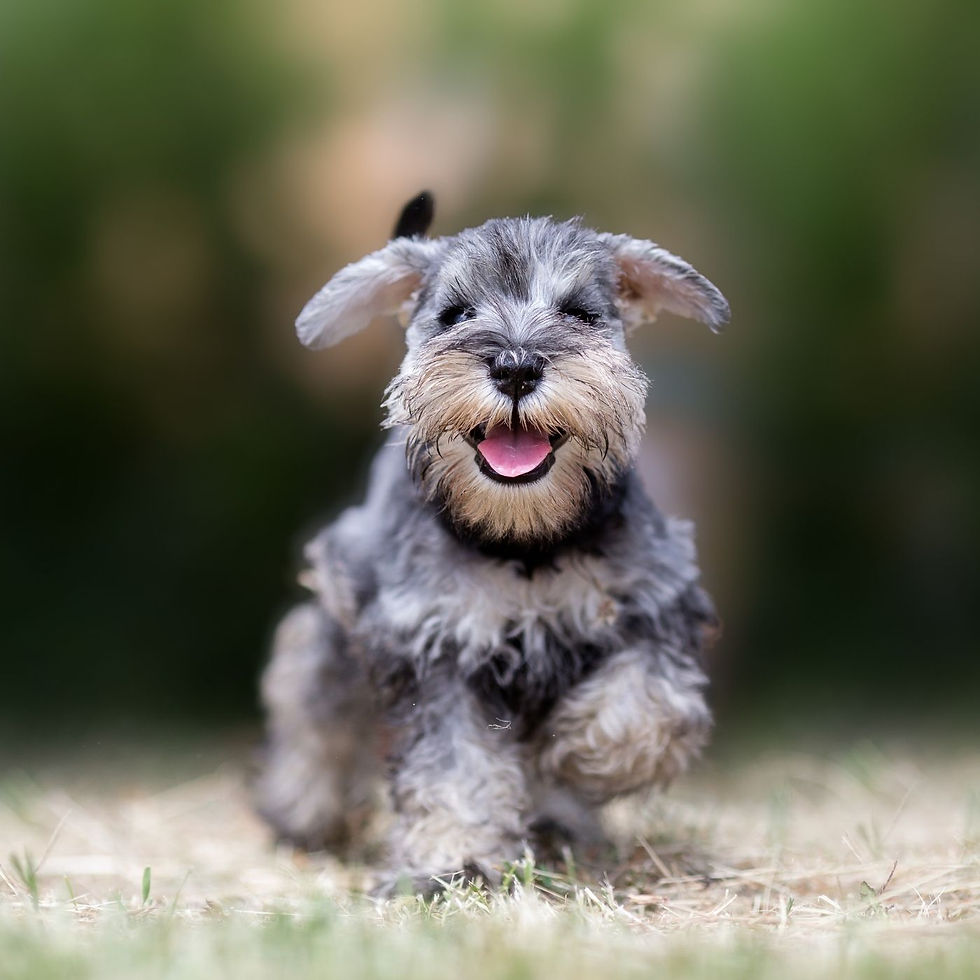
Miniature Schnauzers are intelligent, spirited, and eager to please, making them excellent candidates for training. With their distinctive appearance, lively personality, and unwavering loyalty, Miniature Schnauzers have captured the hearts of dog lovers around the world. In this comprehensive guide, we'll explore some training tips and techniques specifically tailored to the needs and characteristics of the Miniature Schnauzer breed.
Understanding the Breed
Before diving into specific training methods, it's essential to understand the unique characteristics and traits of Miniature Schnauzers. These dogs are known for their intelligence, alertness, and confidence, as well as their spirited and independent nature. Miniature Schnauzers are quick learners with a strong desire to please their owners, but they can also be stubborn and willful at times, requiring patient and consistent training.
Start Early and Be Consistent
Early socialization and obedience training are crucial for Miniature Schnauzers to develop into well-behaved and well-adjusted companions. Start training your Miniature Schnauzer as soon as you bring them home, ideally between 8 to 12 weeks of age. Use positive reinforcement techniques such as praise, treats, and rewards to motivate and encourage desired behaviors. Be consistent with your training methods and expectations to avoid confusion and frustration.
Focus on Positive Reinforcement
Miniature Schnauzers respond best to positive reinforcement techniques, which involve rewarding desired behaviors rather than punishing unwanted ones. Use treats, toys, praise, and affection to reinforce good manners and obedience. Consistency, patience, and encouragement are key to building trust and strengthening the bond between you and your Miniature Schnauzer. Avoid using harsh or punitive methods, as these can damage your dog's trust and confidence.
Use Short, Focused Training Sessions
Miniature Schnauzers have relatively short attention spans, so it's essential to keep training sessions short, focused, and engaging. Aim for several short sessions throughout the day, each lasting no more than 10 to 15 minutes. Focus on one or two commands or behaviors at a time, and gradually increase the difficulty as your dog progresses. End each session on a positive note with plenty of praise and rewards.
Teach Basic Obedience Commands
Start by teaching your Miniature Schnauzer basic obedience commands such as sit, stay, come, down, and heel. Use clear, consistent cues and gestures to communicate your expectations, and reward your dog with treats and praise for obeying commands. Break down training exercises into small, manageable steps, and be patient as your dog learns and masters each behavior.
Socialize Early and Often
Early socialization is essential for Miniature Schnauzers to develop into well-rounded and confident dogs. Expose them to a variety of people, animals, environments, and situations from a young age to help them feel comfortable and secure in different settings. Arrange playdates with other dogs, take them to puppy classes, and introduce them to new sights, sounds, and experiences to build their confidence and social skills.
Address Undesirable Behaviors Promptly
Miniature Schnauzers are intelligent and independent dogs that may exhibit undesirable behaviors such as excessive barking, digging, or stubbornness if not properly trained and managed. Address these behaviors promptly and consistently using positive reinforcement techniques and redirection. Consistency, patience, and positive reinforcement are key to shaping desired behaviors and discouraging unwanted ones.
Be Patient and Persistent
Training a Miniature Schnauzer requires patience, persistence, and dedication. Be prepared to invest time and effort into your dog's training, and don't get discouraged by setbacks or challenges along the way. Stay calm, confident, and consistent in your approach, and celebrate each small success as you progress towards your training goals. Remember that building a strong bond and mutual trust with your Miniature Schnauzer is just as important as teaching them commands and behaviors.
Conclusion
Training a Miniature Schnauzer can be a rewarding and fulfilling experience for both you and your dog. By understanding their unique characteristics, using positive reinforcement techniques, and providing plenty of mental and physical stimulation, you can unlock their full potential and help them become well-behaved, well-adjusted companions. With patience, persistence, and a commitment to training, you and your Miniature Schnauzer can enjoy a lifetime of love, loyalty, and shared adventures together.

Comments